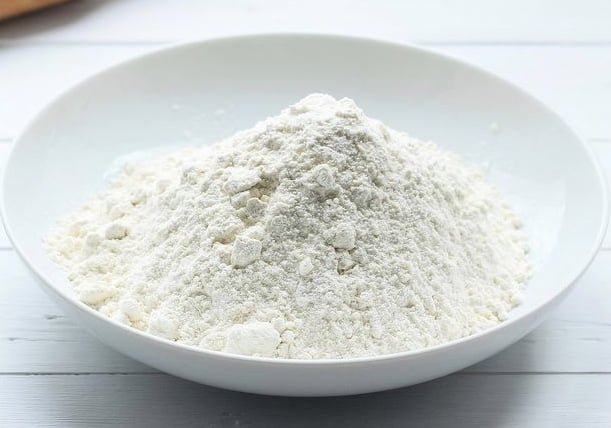Sweet or salty cookies and various pastries are foods no one can easily turn down. However, poor nutritional habits are associated with many diseases.

Flour is one of the three “white poisons” to avoid. With changing eating habits, new generation flours with a high glycemic index or without gluten are taking their place kitchens. Gluten, lectin and high carbohydrates in wheat flours can cause negatively metabolic effects. People with coeliac disease should not consume white flour. Flour produced from various sources increase the effect of new nutrition methods and are frequently produced from oily seeds and various plants that do not contain gluten and are high in glycemic indexes, vitamins and minerals.
New generation flours
Coconut flour: Produced after coconut is dried and ground, it is rich in fiber and functional fats and useful in low carbohydrate diet programs, such as the paleo diet. Its functional fats help the body balance sugar metabolisms and cholesterol levels; thus, it can be used in dessert recipes.
Almond, walnut and nut flours: These are produced from oily seeds and do not have much gluten, lectin and carbohydrate but are rich in amino acid, magnesium, copper, mangan, calcium and potassium. In particular, walnut and almond help decrease LDL cholesterol – bad cholesterol. Almond flour also has a thickener feature good for many sweet and salty recipes.
Amaranth flour: The seeds plants whose flowers are used for decoration can be used as grains. Previously unpopular, Amaranth is more neutral than alternatives in terms of taste and can be used in all recipes. Due to high protein content, it is good for low-carbohydrate diets, does not contain gluten, is high in folic acid and has high mineral content. Thus, it is good for pregnant women.
Buckwheat flour: It is not a type of wheat and does not contain gluten. Buckwheat is rich in antioxidants, vitamin B, manganese, magnesium, zinc, iron and folic acid and is easy to digest due to the fiber content. Used in bread recipes, buckwheat can be used in sweets but is more appropriate for salty recipes.
Teff flour: Teff flour, the smallest grain in the world, does not contain gluten, is rich in iron, vitamin B, calcium and many other minerals and supports the metabolism. Generally, it used with other gluten-free flours in recipes to make them dryer.
I will tell you an excellent sugar-free brownie recipe using coconut flour:
Ingredients: two ripe bananas, two tablespoons of coconut flour, two coffee spoons of coconut oil, one tablespoon of cocoa, one egg, little water, one tablespoon of pekmez (molasses-like syrup) and one cup of filter coffee.
Mash the bananas in a mixer. Add coconut flour, one spoon of coconut oil, cocoa, one egg and water and mix Oil tray with the rest of coconut oil and pour the mixture in. Cook in oven at 180 degrees for 30-40 minutes. While it is in the oven, prepare a mixture by adding one tablespoon of pekmez into a cup of filter coffee. When your cake is cooked, pour this mixture on it.